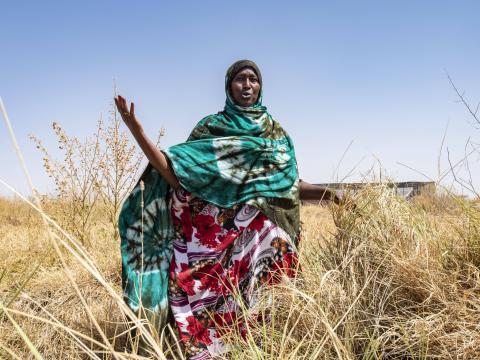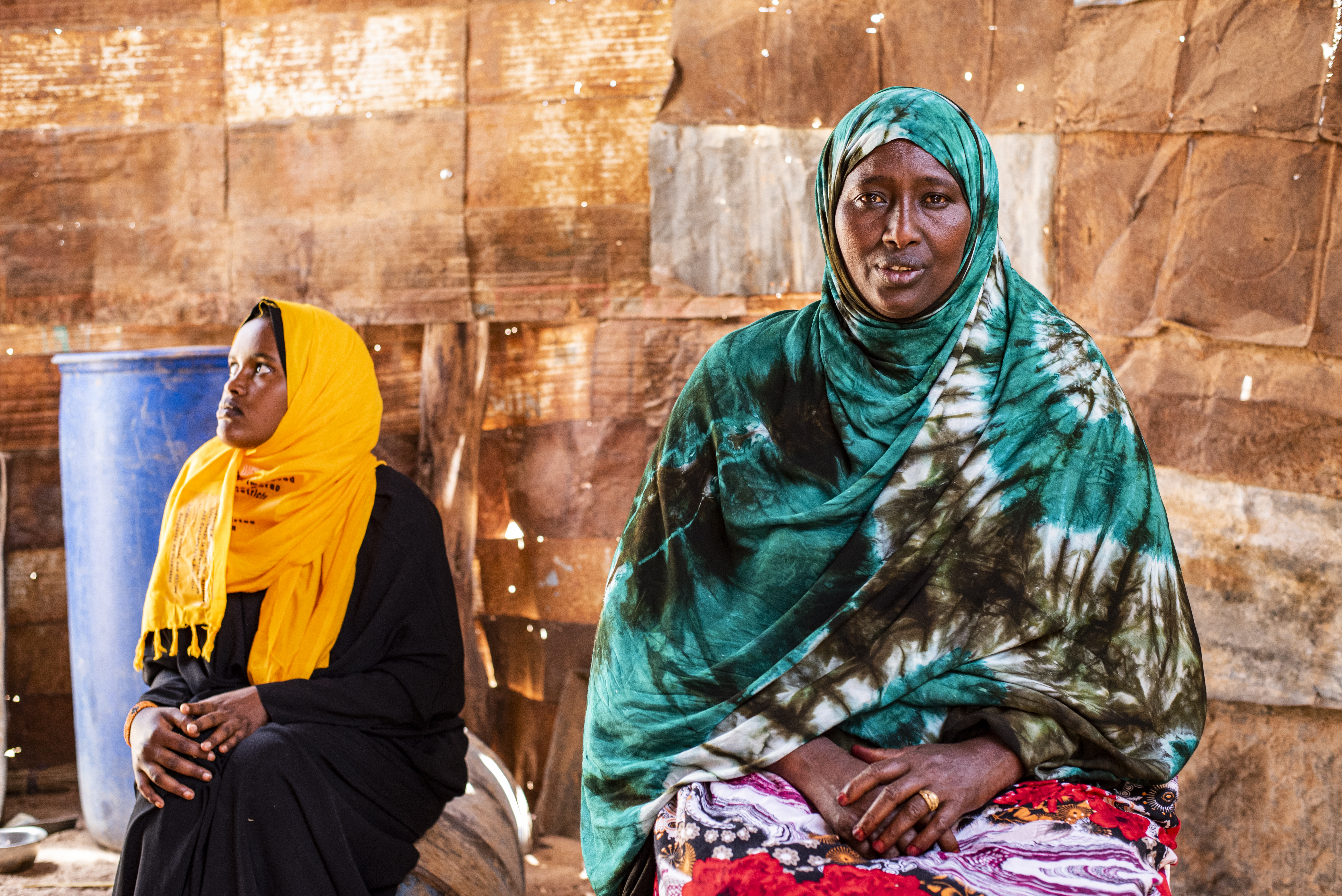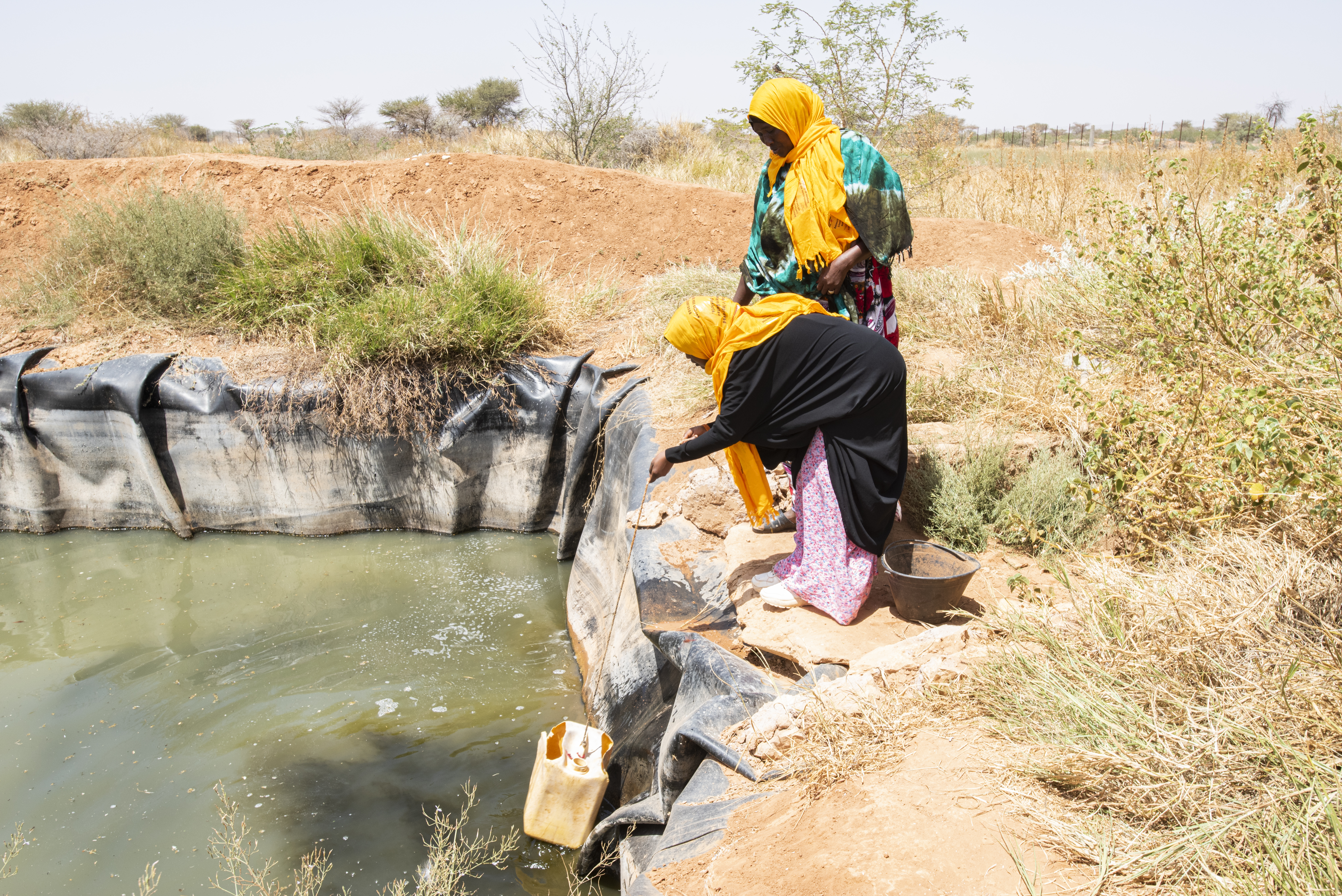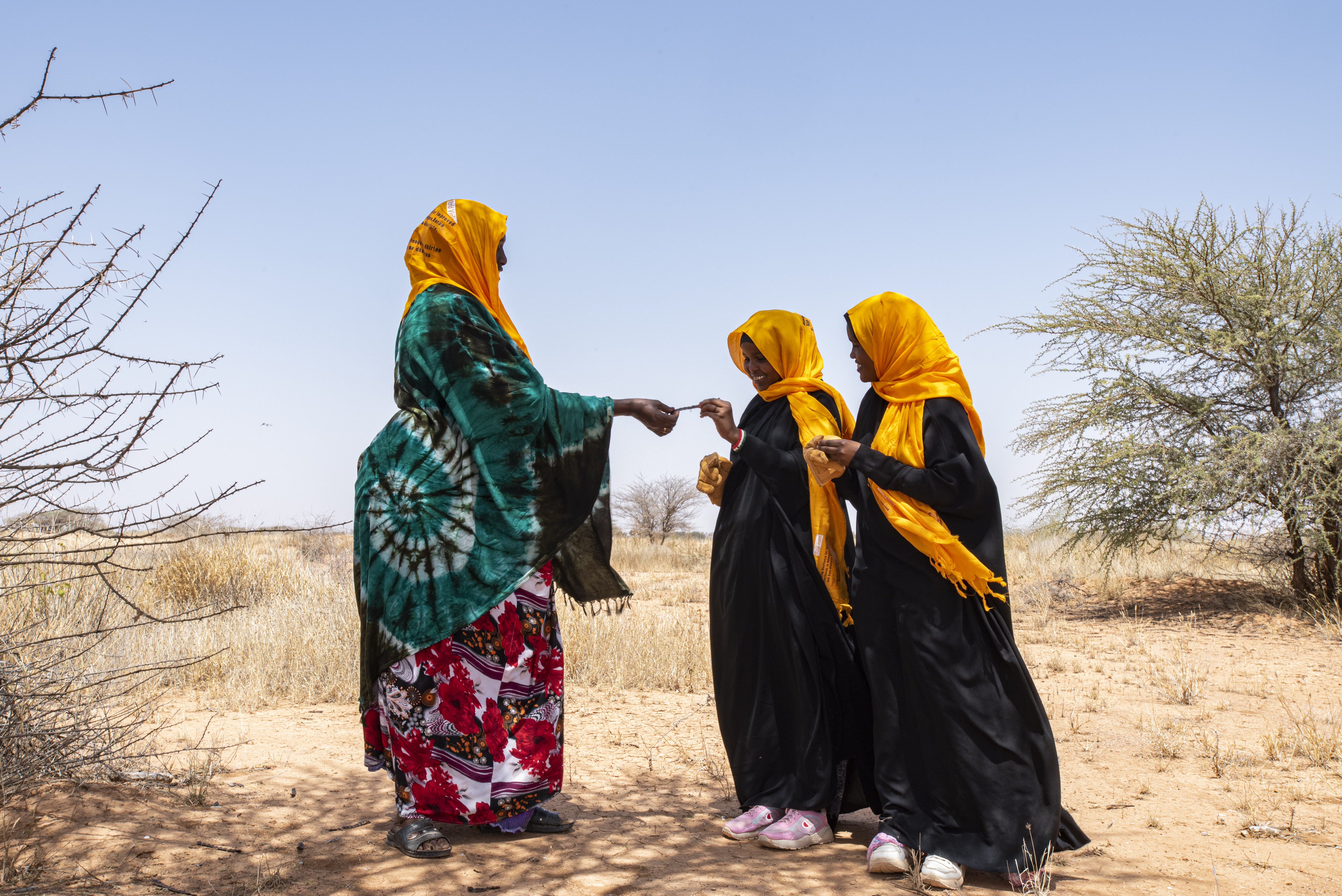Somali communities survive and thrive through low-cost land restoration techniques

The Beerato Farmer Managed Natural Regeneration (FMNR) site experiment
Sahra Eige Story:

Sahra Eige, a mother of four children hails from Beerato, a village in Odwayne district in central Somaliland. She works as an agro-pastoralist, but she is also involved in the community as Vice-Chairlady of the Farmer Managed Natural Regeneration (FMNR) champion member / member of a Village Savings and Loans Association group.
FMNR is a low-cost land restoration technique used to combat poverty and hunger amongst poor subsistence farmers by increasing food and timber production and resilience to climate extremes. It’s cheaper, faster and effective.
Sahra has been involved in the project since 2017. With the rest of the community, she has been experimenting with new techniques, and has learnt about regenerating trees and managing the stock of grass for livestock. Since the implementation of the project, she has seen a huge difference in the FMNR site.
“Before this project, it was just dust, there was no trees, no grass,” says Sahra.
According to Sarah, during the droughts in 2016/2017, the community lost 90% of their livestock. That is why she got interested in learning new techniques regarding resource management. Before the drought, she had 40 goats and sheep, and she was left with only two at the end of that episode of drought. Besides farming, Sahra used to run a shop in the centre of the small village in Beerato. The drought also impacted her business as she had to sell her stocks to survive.
“We experienced very severe droughts, we lost most of our livestock. This happened while we were not well prepared,” she explains.

When World Vision started implementing the FMNR project in 2017 through funding from Australia, Sahra was one of the community members involved in the Cash for Work activity; which consisted of planting grass, seedlings and tree pruning. She also learnt some other techniques, such as beekeeping. The community recently produced 20 kilograms of honey.
“When we started the work, it was really hard for us as women to do such kind of work, but we did. I’ve learned to protect the environment and I also learned how to handle hives and harvest the honey,” she adds.
Since she joined the FMNR group, Sahra has been able to increase her livestock which now counts 15 sheep and goats. On top of learning new techniques, she has also generated income which has benefited her and her four children. She also teaches her eldest daughter what she learned about tree regeneration and the protection of the environment.
“We teach them (children) to take care of the trees because it is our future” Sahra says.
Now, she does not have an issue with feeding her children and with paying their school fees. She and her fellow community members have also learned to store grass for fodder for their livestock to be prepared in case of another drought.
“I am expecting that my children will have a good future and complete their education,” Sahra shares her hopes.
